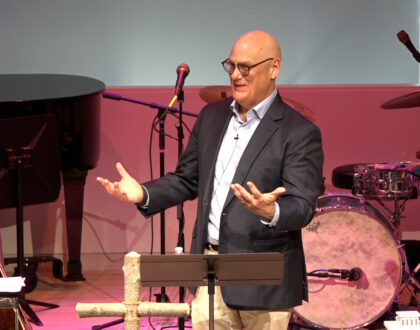Our Elusive Quest for Happiness and Meaning
I once heard a well-known minister from California say the following words emphatically: “Spiritual emptiness is a universal disease.” How do we know that this is true?
Take a look at our culture. Look at the rising levels of depression, suicide, anxiety, loneliness, alcoholism, drug addiction, anger, fear, hate, and incivility. Each of these things points to rising levels of spiritual emptiness and a culture that needs spiritual renewal and revitalization. This is not an attempt to paint a completely pessimistic and dismal picture of where we are. Many are able to find healthy ways to nurture their soul and tend to their spiritual lives. However, there are clear indicators that many struggle to find meaning, are less fulfilled, and more restless than ever before.
Certain factors are contributing to this including the fast pace of our culture which is largely driven by technology. Anxiety is at an all-time high. We no longer take time to slow down and reflect. It is also caused by our failure to nurture the soul. In the same way that our physical bodies need exercise, diet, and sleep, our soul also has fundamental needs. These include a desire for stillness, prayer, reflection, connection, and quality time with those whom we love and who care deeply about us. There is a clear correlation between our spiritual well-being and our ability to find happiness.
In his book Happiness: The Art of Living with Peace, Confidence, and Joy, businessman Doug Smith says: “Happy people have an underlying sense of well-being and contentment. They remember the past with peace, anticipate the future with confidence, and experience and live in the present with joy and exuberance. This attitude is sourced by a life integrated by meaningful purpose and sound principles and enhanced by healthy relationships and appropriate pleasure.”
It is important to note that Smith chooses the word “happiness” as a broad term that incorporates meaning and purpose. The quest for human happiness is certainly nothing new. 2000 years ago, Aristotle said, “Happiness is the meaning and the purpose of life, the whole aim and end of human existence.” Jesus of Nazareth said, “I came that they may have life in all of its fullness.” When signing the Declaration, our nation’s founders said that we all have God-given rights to“life, liberty, and the pursuit of happiness.” However, in this ongoing pursuit, there are common misunderstandings which include: the belief that money buys happiness; fame and status bring happiness; and possessions will satisfy our deepest yearnings. All of these things are false. Money might bring some security, but not lasting happiness. Celebrity Jim Carey recently said, “I wish everybody could be rich and famous so they could discover how empty it really is.”
Happiness at its core is tied to spirituality and fulfillment. We must discover and value the things in life that truly give us meaning. Blaise Pascal argued that the only way to find happiness is to uproot false beliefs and replace them with genuine wisdom. This involves replacing fear with faith, cynicism with hope, fake friends with authentic relationships, anger with forgiveness, and jealousy with gratitude.
Spiritual emptiness results from focusing on the wrong things, and we all do it. The only remedy is to focus on the right things, or as Paul writes, “Whatever is true, honorable, just pure, pleasing, commendable, excellent, and worthy of praise.” This is what deserves our time and attention and will lead us to a deeper spirituality.
Recommended Posts

Authenticity in a Social Media World
April 16, 2024

“Leveraging Our Love” – Jay Hutchens – April 14, 2024
April 14, 2024

Living with Gratitude & Generosity
April 11, 2024

